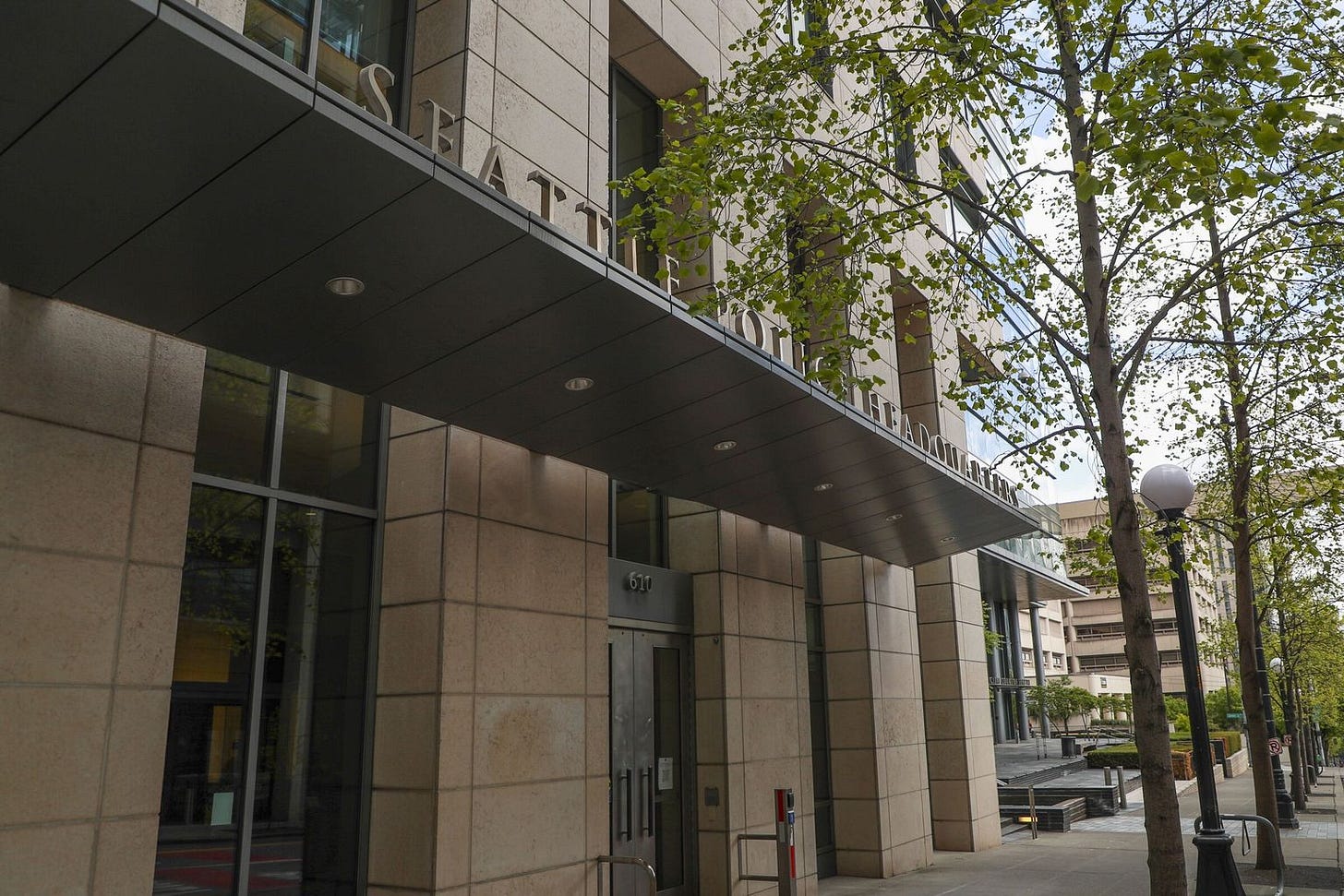A Seattle cop arrested for DV was fired less than two months later. Here's why that's rare.
Seattle Police Officer John Nguyen was arrested for domestic violence in May and let go in July. SPD has taken years to terminate officers for similar violations. What's different?
Content note: This post contains descriptions of domestic violence.
In a rare move, the Seattle Police Department terminated an officer less than two months after a domestic violence arrest — before an internal investigation was completed or charges were filed.
On May 31, King County deputies arrested former Officer John Nguyen for fighting with his brother and punching a hole in the door at his brother’s house. According to the police report, Nguyen had been drinking all day and was yelling at his wife and kids, and his brother confronted him when he came home from work.
The department terminated Nguyen on July 16 for “failure to meet training expectations and requirements.” However, if Nguyen had been a cop for just a few months longer, he would’ve been virtually untouchable.
Hired in 2023, Nguyen was still a probationary officer when this incident happened. The Chief of Police has the discretion to fire an officer without cause at any time during this period.
Nguyen was nearly midway through his probation. If he had completed the one-year term, he would have become a full-fledged officer, protected by the police guild contract and entitled to special rights granted to public employees.
The difference in how allegations against these two classes of officers are handled couldn’t be starker.
As we previously reported, at least two other officers are on administrative leave for more serious allegations of domestic violence. One is accused of pushing his fiancée down a flight of stairs, and the other of firing a gun indoors, narrowly missing his wife. The latter officer, Richard Norris, has been on paid leave since 2024.
Criminal misconduct investigations can drag on for years if no formal charges are filed. Prosecutors tend not to charge officers, and domestic violence victims frequently stop cooperating, especially if the perpetrator is a cop.
In one case, the Office of Police Accountability spent more than two years investigating Officer Andrew Swartz, who was stalking his ex-girlfriend. Detectives established probable cause in 2021, but the prosecutor declined charges, and Swartz wasn’t terminated until 2023.
Similarly, Officer Rosa Lopez-Ojeda was never charged for assaulting her romantic partner, also an SPD officer, at a going-away party for another officer in 2020, even though several police officers witnessed the assault. She wasn’t terminated until 2023. Notably, the courts did not charge Nguyen until over a month after the Seattle police fired him.
The Seattle Police Officers Guild contract offers members powerful protections against termination, the most important being an elevated standard of review for cases that are “stigmatizing” to officers (this may be finally changed in the indeterminate future through interest arbitration).
If the OPA can’t prove allegations to a “clear and convincing” level, the officer’s firing can be overturned in arbitration, and the city could be forced to reinstate them with back pay.
In the past, officers have done worse than Nguyen and stayed on the force:
Robert Cierley, a motorcycle cop, allegedly punched and strangled his girlfriend. Though there was physical evidence, the woman recanted her statement, so he was never punished.
Brady O’Keefe grabbed his girlfriend by the hair and threw her down to the concrete at a ballgame.
Daniel Perez-Puga threatened to slash his girlfriend’s tires and also allegedly assaulted her on several other occasions
Scott Moss was arrested after allegedly cutting his wife’s hand with a kitchen knife. The case fell apart when his wife stopped cooperating. He’s now a captain.
Ronald Murray, the DV sergeant at the time, was witnessed by deputies dragging his girlfriend by the hair through a gravel parking lot. He received deferred prosecution and retired a few years later.
This creates a perverse situation where recruits can be fired for cheating at the academy, while officers can’t be let go for dishonesty or actual crimes. Police Chiefs have a very narrow window to weed out the proverbial “bad apples” before they become full officers and are nearly impossible to fire.


